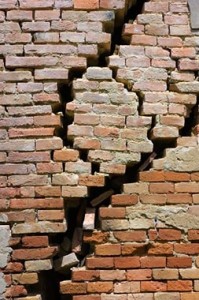The vast majority of businesses have various security and safety procedures already set up in the eventuality of a major crisis. Those are made to ensure the continuity of their operations in the aftermath of a disaster, natural or man-made.
It comes without saying that both individuals and families should also know what to do in the aftermath of a disaster, like if a tornado, an earthquake or a flood strikes.
I hope you already have a family emergency plan that includes the means of communicating with your family members in case of a disaster, in the eventuality that they’re not together when SHTF. You must make sure that all of your family members’ cell phones are packed with useful numbers, such as close relatives and neighbors and also they know who must be called first in the case of an emergency.
Now, let’s talk about the five things to do in the aftermath of a disaster:
1. Health and Safety – Your Primary Concern in the Immediate Aftermath
Obviously, there are many types of disasters and each of them comes with its own unique challenges, but here’s a list of steps that are almost universal:
- You must check out your surroundings for safety and in the eventuality of a biological/radiological/chemical threat you should follow the instructions from your local TV/Radio stations about reaching safe places in your vicinity. It’s a good idea to research local safe spots such as shelters in advance.
- Try to seek professional help if there are injured people around and if it’s not available, provide first aid to those who need it.
- Keep your calm in all situations, don’t abuse your telephone line unless it’s absolutely necessary and if you are away from your home, don’t come back until you know for a fact that it’s safe to do so.
- Avoid driving unless it’s absolutely necessary in order to keep the roads clear for the emergency/rescue teams.
2. Upon Returning Home, Check Its Structural Elements for Damage
Make sure that your residence is sound and safe before entering.
- Return home only if you know that it’s safe to do so and check out the area before entering your residence.
- Look for damaged power/gas lines, cracked walls/foundations, damaged/missing support beams and other visible signs of damage or danger. After the emergency is over, you can also ask for a building inspector to verify the safety of your residence before you return home, just in case.
- If the front door is jammed, don’t try to force it open; it may incite a collapse. Try to find another way to get in.
- Sniff for gas leaks. If you smell something suspicious (natural gas smells like sulfur or rotten eggs), call the fire department ASAP.
- Look out for damaged objects (furniture, stairs) that may be unstable and also be careful about cracked/damaged building parts. If your ceiling/floors are sagging, they could collapse at any time, so pay attention and exercise caution. Remember: better safe than sorry.
- Use a flashlight when inspecting your property if the power is out. Never use candles/open flames.
- Take photos of the damage. You’ll need them later, if you’ll make insurance claims.
3. Check for Damage to Your Major Home Systems, Utilities and Household Items
Once your residence is deemed safe to enter, determine what types of repairs and property claims are necessary.
- Check out the plumbing, electrical and heating systems. If you smell burned insulation or if you notice sparks, shut down the power.
- If the sewage piping is damaged, don’t use showers or toilets. Repair them first or call for a plumber. The same goes for damaged water pipes.
- Verify that your telephone line and your phones are working. If they’re broken or if there’s a problem with the service provider, do what you need to do to fix them.
- Clean up spilled chemicals and be aware of hazardous toxic fumes that may be produced in the case of mixed cleaning products.
- Wear rubber gloves especially when cleaning up spilled chemical products.
- Beverages, medicine and food exposed to soot, smoke or heat must be thrown away or composted, if possible.
- Before using your home appliances, you must disconnect and check them for damage.
4. Recover Emotionally and Cope with Disaster

People react to stress similarly, for example:
- They may feel drained physically and mentally.
- They may become irritated and frustrated more quickly, arguing more than before with their friends or family members.
- There are changes in sleep patterns and appetite because people are feeling numb, tired, worried or lonely.
All these symptoms are probably a temporary reaction to stress but they must be accepted and coped with. Depression and mood swings are common in the aftermath of disasters and taking care of yourself and your loved ones both physically and mentally should be your primary concern.
5. Recover Financially After Disaster
In the aftermath of a disaster, you may face financial challenges in addition to the initial emotional and physical impact. Here are some tips to help you maintain and get back on track:
- As soon as you have assessed and documented your property damage, contact your insurance company/insurance broker if they are still viable and file a claims report.
- Make a list of lost/damaged items along with the receipts (if you have them available). Consider providing photo/video proof of the damage to further support your claim.
- Provide your insurance company with receipts of your expenses, including repairs and an inventory of your damaged property.
- Control your cash flow (bills/debts): notify your service companies when your home is temporary uninhabitable so that they will stop billing you. Prioritize your bills, giving top priority to rent/mortgage/insurance premiums and other payments that are absolutely necessary to prevent further loss.
- Replace all of your vital documents that were damaged/lost during the disaster, such as your driver’s license (DMV), ID, your insurance policies, your passport etc.
If there no insurance company to pay for your damaged property, and the society as we know it has collapsed, be prepared to replace the old currency system with bartering and trade.
Also, be aware of scammers and thieves that are operating in the aftermath of disasters, taking advantage of vulnerable people.

Photo sources: 123RF






















































































Comments 7